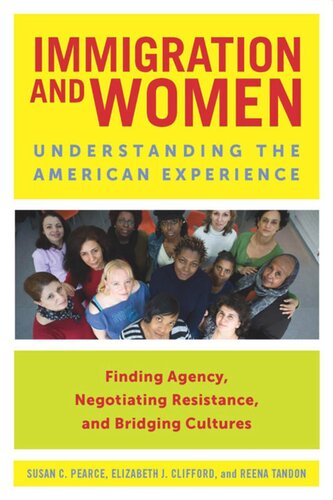

Most ebook files are in PDF format, so you can easily read them using various software such as Foxit Reader or directly on the Google Chrome browser.
Some ebook files are released by publishers in other formats such as .awz, .mobi, .epub, .fb2, etc. You may need to install specific software to read these formats on mobile/PC, such as Calibre.
Please read the tutorial at this link: https://ebookbell.com/faq
We offer FREE conversion to the popular formats you request; however, this may take some time. Therefore, right after payment, please email us, and we will try to provide the service as quickly as possible.
For some exceptional file formats or broken links (if any), please refrain from opening any disputes. Instead, email us first, and we will try to assist within a maximum of 6 hours.
EbookBell Team

4.1
20 reviewsThe popular debate around contemporary U.S. immigration tends to conjure images of men waiting on the side of the road for construction jobs, working in kitchens or delis, driving taxis, and sending money to their wives and families in their home countries, while women are often left out of these pictures. Immigration and Women is a national portrait of immigrant women who live in the United States today, featuring the voices of these women as they describe their contributions to work, culture, and activism.
Through an examination of U.S. Census data and interviews with women across nationalities, we hear the poignant, humorous, hopeful, and defiant words of these women as they describe the often confusing terrain where they are starting new lives, creating architecture firms, building urban high-rises, caring for children, cleaning offices, producing creative works, and organizing for social change. Highlighting the gendered quality of the immigration process, Immigration and Women interrogates how human agency and societal structures interact within the intersecting social locations of gender and migration. The authors recommend changes for public policy to address the constraints these women face, insisting that new policy must be attentive to the diverse profile of today’s immigrating woman: she is both potentially vulnerable to exploitative conditions and forging new avenues of societal leadership.